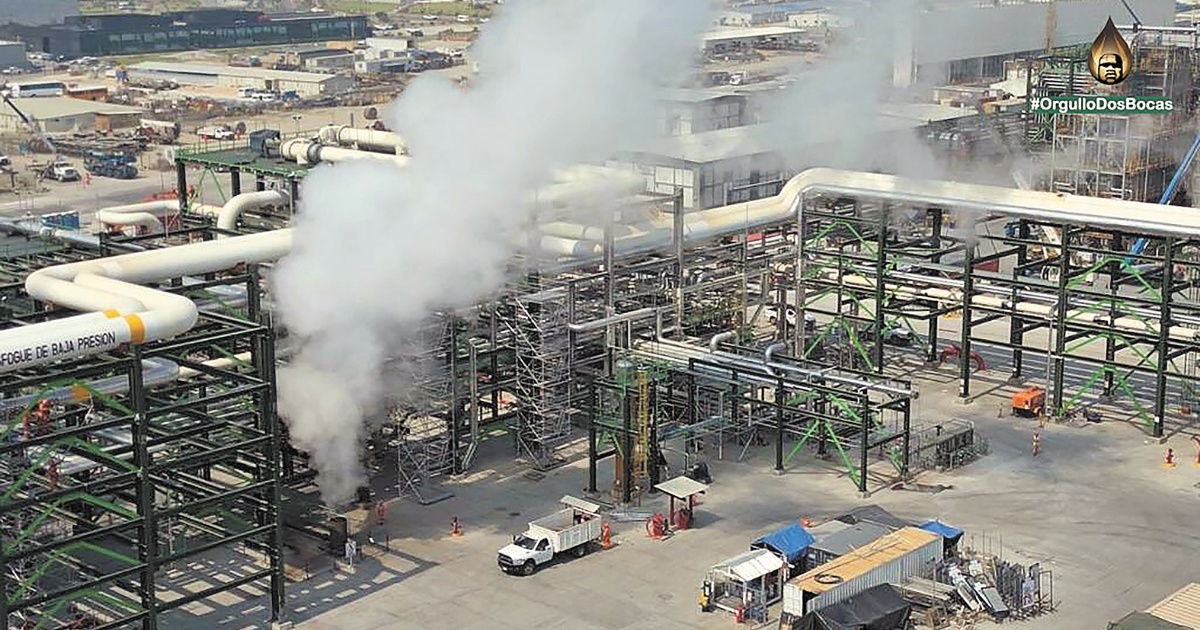Heading into the last third of the López Obrador administration, the adjustments in the production goals of Petróleos Mexicanos (Pemex) do not stop. And the biases are downward or delayed compliance.
From the outset, it will no longer be in 2023, but it would be until 2024 when Mexico stops importing fuel, according to what was declared yesterday by Octavio Romero Oropeza, general director of Pemex, in his appearance before the united commissions of Energy and Infrastructure in the Chamber of Deputies.
When are we planning to stop importing gasoline? At the end of this administration. This includes finishing the Dos Bocas refinery, the Tula and Salamanca coking plant, the Salina Cruz plant. And put the SNR (National Refining System) at 100% capacity. The commitment is in 2024 to achieve self-sufficiency or to be very close to it”, answered Romero Oropeza to the question asked by the brunette Adela Ramos Juárez.
In December 2021, in the latest edition of its business plan, Pemex predicted that in 2023 it would be processing one million 971,000 barrels of crude oil per day – its entire production – through the six refineries of its SNR (one million 308,000 barrels), the Deer Park refinery in Houston, Texas (323,000 barrels), and the Dos Bocas refinery, which was expected to be working at 100% of its capacity (340,000 barrels).
According to this plan, in 2023 Mexico would no longer require imported product to satisfy its local consumption, since Pemex estimated to be producing 776,000 barrels of gasoline per day and 489,000 barrels of diesel per day, volumes virtually sufficient to satisfy a national demand that, for put into perspective, during the first half of this year it was around 780,000 barrels per day for gasoline and 372,000 barrels per day for diesel.
According to the goals of December 2021, by 2024 the crude oil process in the SNR, Deer Park and Dos Bocas, would reach two million barrels per day, which would translate into the production of 858,000 barrels per day of gasoline and 542,000 barrels per day of diesel.
The delay in meeting the goal is consistent with the 2022 refining figures reported by Romero Oropeza to the deputies.
And it is that from January to September of this year the process of crude oil in refineries reached 808,000 barrels of oil per day, a figure that is 13.5% higher than that observed in 2021, but it is 33% below what the state company proposed. in your December 2021 plan.
The director of Pemex even presumed that by the end of 2022, by adding the capacity of the recently acquired Deer Park, the crude process will reach one million 90,000 barrels of oil (a figure 78% higher than that observed in 2018, prior to the current administration), but that volume is 28% lower than the 509,000 million barrels per day that had been proposed at the end of last year.
In order for Pemex to improve its production yields, the state-owned company must reduce the production of fuel oil by expanding its coking process, which allows it to obtain more gasoline and diesel after the atmospheric distillation process of crude oil.
Octavio Romero acknowledged that the coking machines at the Tula refineries – which will transform the fuel oil from the Tula and Salamanca refineries – and Salina Cruz still need to be completed, after which the six SNR refineries will have said production unit.
For its part, the Dos Bocas refinery will begin operations with a coking plant. However, the director of Pemex did not specify when both works would be finished.
Decrease in crude oil target
On the other hand, Octavio Romero reported that Pemex’s current crude oil and condensate production goal at the end of 2022 is 1.8 million barrels per day. This figure is lower than the 1,827 million barrels presented to investors in a presentation dated this month.
In a broader perspective, the number is 7.4% lower than the goal of 1,944 million barrels set in the aforementioned Pemex business plan for December 2021.
The director of Pemex highlighted that almost a quarter of the current production (402,000 barrels per day) already comes from the exploitation of 36 new fields whose production began in this administration, works that made it possible to counteract the declining trend in oil extraction.
octavio.amador@eleconomista.mx
hartford car insurance shop car insurance best car insurance quotes best online car insurance get auto insurance quotes auto insurance quotes most affordable car insurance car insurance providers car insurance best deals best insurance quotes get car insurance online best comprehensive car insurance best cheap auto insurance auto policy switching car insurance car insurance quotes auto insurance best affordable car insurance online auto insurance quotes az auto insurance commercial auto insurance instant car insurance buy car insurance online best auto insurance companies best car insurance policy best auto insurance vehicle insurance quotes aaa insurance quote auto and home insurance quotes car insurance search best and cheapest car insurance best price car insurance best vehicle insurance aaa car insurance quote find cheap car insurance new car insurance quote auto insurance companies get car insurance quotes best cheap car insurance car insurance policy online new car insurance policy get car insurance car insurance company best cheap insurance car insurance online quote car insurance finder comprehensive insurance quote car insurance quotes near me get insurance









